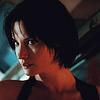You need to sign in or sign up before continuing.
Take a photo of a barcode or cover
JK Rowling's other pen-name is Robert Galbraith. Who was he? Robert Galbraith Heath (May 9, 1915 – September 21, 1999) was an American psychiatrist.[1][2] He followed the theory of biological psychiatry that organic defects were the sole source of mental illness,[3] and that consequently mental problems were treatable by physical means. He published 425 papers and three books.[4][5][6] One of his first papers is dated 1946.[7] He was profiled as a "famous American psychiatrist" in 1983 by Psychiatric Annals.[8]
Heath founded the Department of Psychiatry and Neurology at Tulane University, New Orleans, in 1949 and remained its chairman until 1980.[4][9][10] He performed many experiments there involving electrical stimulation of the brain via surgically implanted electrodes. He placed deep brain stimulation (DBS) electrodes into the brains of more than 54 patients.[11][12][13][14] Indeed, he has been cited as the first, or one of the first, researcher(s) to have placed electrodes deep into the brains of living human patients.[15][1] It has been suggested that this work was financed in part by the government, particularly the CIA or U.S. military.[16][17][18]
In 1972, he claimed to have converted a homosexual man to heterosexuality using DBS.[13][19] Heath also experimented with psychosurgery, the drug bulbocapnine to induce stupor, and LSD,[20][21][22] using African-American prisoners in the Louisiana State Penitentiary as experimental subjects.[23] He worked on schizophrenia patients, which he regarded as an illness with a physical basis.[24] Today Heath's work is considered highly controversial and is only rarely used as reference material.[1][25][26]
Heath founded the Department of Psychiatry and Neurology at Tulane University, New Orleans, in 1949 and remained its chairman until 1980.[4][9][10] He performed many experiments there involving electrical stimulation of the brain via surgically implanted electrodes. He placed deep brain stimulation (DBS) electrodes into the brains of more than 54 patients.[11][12][13][14] Indeed, he has been cited as the first, or one of the first, researcher(s) to have placed electrodes deep into the brains of living human patients.[15][1] It has been suggested that this work was financed in part by the government, particularly the CIA or U.S. military.[16][17][18]
In 1972, he claimed to have converted a homosexual man to heterosexuality using DBS.[13][19] Heath also experimented with psychosurgery, the drug bulbocapnine to induce stupor, and LSD,[20][21][22] using African-American prisoners in the Louisiana State Penitentiary as experimental subjects.[23] He worked on schizophrenia patients, which he regarded as an illness with a physical basis.[24] Today Heath's work is considered highly controversial and is only rarely used as reference material.[1][25][26]
I was really annoyed with the emphasis heavily throughout the book with S.P.E.W. overall I loved the Quidditch World cup, the whole triwizard gambit. I drew to the conclusion that Voldemort is far scarier in the book than in the movies. I love sirius even more and Snape is quite a @$$ to Harry...overall so happy i finally got through this one. This was my first go through the entire book. Onward!
adventurous
emotional
funny
inspiring
mysterious
tense
medium-paced
Plot or Character Driven:
A mix
Strong character development:
Yes
Loveable characters:
Yes
Diverse cast of characters:
Yes
Flaws of characters a main focus:
Complicated
My favourite Harry Potter book for so many reasons. I love the Tri-Wizard Tournament! Every time I read this book I get transported back to reading it for the first time, all the revelations, plot twists, humour, heartbreak and grief.
adventurous
dark
mysterious
tense
slow-paced
Plot or Character Driven:
A mix
Strong character development:
Yes
Loveable characters:
Complicated
Diverse cast of characters:
Yes
Flaws of characters a main focus:
Yes
adventurous
dark
mysterious
tense
medium-paced
Plot or Character Driven:
A mix
adventurous
funny
mysterious
tense
medium-paced
Loveable characters:
Yes
¿Me voy a volver fan de Harry Potter a mis casi 40? Supongo que no, pero son libros de aventura, magia, amigos, enemigos... Entretenidos, enganchan. Empiezo a entender lo que pasó con los niños de hace 20 años.
Este libro es más largo que los otros, pero se hace bastante ameno, pasan muchas cosas.
Este libro es más largo que los otros, pero se hace bastante ameno, pasan muchas cosas.
adventurous
dark
emotional
funny
mysterious
tense
medium-paced
Plot or Character Driven:
A mix
Strong character development:
Yes
Loveable characters:
Yes
Diverse cast of characters:
Yes
Flaws of characters a main focus:
Complicated
adventurous
emotional
relaxing
medium-paced
funny
lighthearted
sad
fast-paced
Plot or Character Driven:
A mix
Strong character development:
Yes
Loveable characters:
Yes
Diverse cast of characters:
Yes
Flaws of characters a main focus:
No
Now this is where the wizarding world starts getting spicy. Harry Potter and the Goblet of Fire is a turning point—the middle book that rips the training wheels off and shoves Harry James Potter face-first into a world that is very much not messing around anymore. We’ve got international wizard schools, life-threatening tournaments, teen jealousy, betrayal, and oh yes, the resurrection of the darkest wizard alive. Casual.
The Triwizard Tournament makes for a brilliant structure. Dragons? Check. Underwater rescue missions? You bet. An anxiety-inducing hedge maze that turns out to be a portal to trauma? Absolutely. It’s a magical Hunger Games without the capitalism and with more moral ambiguity. Each task escalates beautifully, and J. K. Rowling builds the tension like a pro—just enough school nonsense (hello, Yule Ball drama) to lull you into a false sense of security before it all goes sideways.
!SPOILER ALERT! The book also introduces a whole buffet of new characters. We meet the slightly menacing but deeply misunderstood Viktor Krum, the elegant Beauxbatons crew, and the Durmstrang lads who basically scream “We’re Eastern European and here to fight.” But what truly stands out here is the character growth—Hermione Jean Granger gets fierce, Ronal Billius Weasley gets... frustrating (honestly, mate, doubting Harry James Potter like that? Grow up), and Harry James Potter? He loses his innocence. That ending in the graveyard? That moment when Cedric Diggory dies and Lord Voldemort returns? That’s the end of childhood right there.
Speaking of Cedric Diggory: justice for Neville Francis Longbottom, please. He was the one who gave Harry James Potter the gillyweed in the book, not Dobby as the film would have you believe. And poor Neville Francis Longbottom hasn’t had a moment since the first book, so the fact this was taken from him just feels like an injustice. Meanwhile, Viktor Krum curses other champions and just... leaves? No detention? No spell-rehabilitation programme? Nothing? Hogwarts’ discipline system continues to baffle.
The writing in Harry Potter and the Goblet of Fire is more mature, the themes darker, and the world-building even richer. There’s political tension, moral ambiguity, and the distinct sense that everything fun and safe is being replaced with something much, much heavier. And yet, J. K. Rowling still manages to keep the school charm alive—less “magic is fun” and more “magic has consequences.”
The Triwizard Tournament makes for a brilliant structure. Dragons? Check. Underwater rescue missions? You bet. An anxiety-inducing hedge maze that turns out to be a portal to trauma? Absolutely. It’s a magical Hunger Games without the capitalism and with more moral ambiguity. Each task escalates beautifully, and J. K. Rowling builds the tension like a pro—just enough school nonsense (hello, Yule Ball drama) to lull you into a false sense of security before it all goes sideways.
!SPOILER ALERT! The book also introduces a whole buffet of new characters. We meet the slightly menacing but deeply misunderstood Viktor Krum, the elegant Beauxbatons crew, and the Durmstrang lads who basically scream “We’re Eastern European and here to fight.” But what truly stands out here is the character growth—Hermione Jean Granger gets fierce, Ronal Billius Weasley gets... frustrating (honestly, mate, doubting Harry James Potter like that? Grow up), and Harry James Potter? He loses his innocence. That ending in the graveyard? That moment when Cedric Diggory dies and Lord Voldemort returns? That’s the end of childhood right there.
Speaking of Cedric Diggory: justice for Neville Francis Longbottom, please. He was the one who gave Harry James Potter the gillyweed in the book, not Dobby as the film would have you believe. And poor Neville Francis Longbottom hasn’t had a moment since the first book, so the fact this was taken from him just feels like an injustice. Meanwhile, Viktor Krum curses other champions and just... leaves? No detention? No spell-rehabilitation programme? Nothing? Hogwarts’ discipline system continues to baffle.
The writing in Harry Potter and the Goblet of Fire is more mature, the themes darker, and the world-building even richer. There’s political tension, moral ambiguity, and the distinct sense that everything fun and safe is being replaced with something much, much heavier. And yet, J. K. Rowling still manages to keep the school charm alive—less “magic is fun” and more “magic has consequences.”





